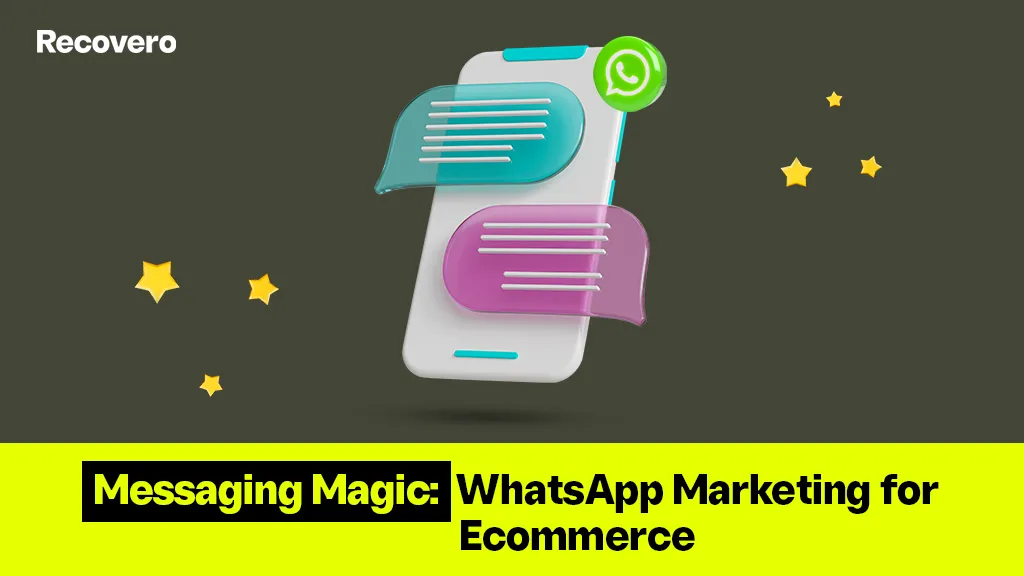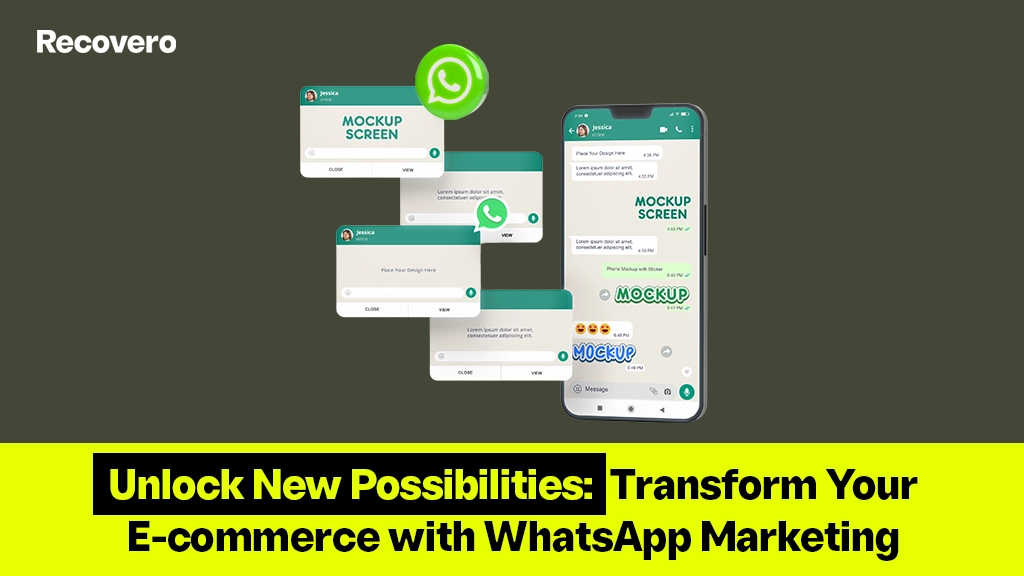SMS marketing is a powerful tool that helps businesses to expand their customer engagement, boost sales, and improve their overall strategy.
However, launching an marketing campaign can seem daunting, especially if you’ve never done it before. But don’t worry, with the right steps, anyone can create a successful marketing campaign. Here in this blog, you will learn through these simple steps how to launch your own marketing campaign.
From choosing a platform to building your list, creating and sending messages, and tracking your results, we’ve covered everything. Whether you’re a small business looking to expand your reach or a large corporation looking to improve your customer engagement, this guide will help you launch an effective SMS marketing campaign in no time.
SMS marketing campaigns are usually short and sweet, with businesses sending out brief messages to promote their latest deals, discounts, or new products. These messages can be personalized to suit individual customers, making them feel valued and appreciated. SMS marketing is also highly cost-effective when compared to traditional forms of advertising such as TV or print media. With the rise of mobile phone usage, it has become an essential tool for businesses looking to connect with their customers on a deeper level.
Benefits Of SMS Marketing:-
There can be three prime reasons for SMS marketing,:-
- Cost-effective: Among all types of marketing, SMS marketing is considered the cheapest marketing practice to reach out to a wider audience.
- Involves direct communication: According to the studies, one spends an average of one-third of its day using the phone. So, mobile allows companies to get a wider audience base.
- Real-time results: There is a very high probability that the customer reads the message in the first five minutes of sending the message. So you can get real-time results and tracks.
Need For SMS In Your Business:-
SMS stands for Short Message Service, which is a text message that can be sent to a customer’s mobile phone. There are several reasons why businesses should use marketing to reach their customers.
- Firstly, SMS messages have an incredibly high open rate. Research shows that 98% of all text messages are opened and read within minutes of being received. This means that businesses can be confident that their messages are being seen by their customers.
- Secondly, it is a great way to reach customers who might not have access to email or social media. Many people still rely on their mobile phones for communication, and SMS messages are a quick and easy way to get in touch with them.
- Thirdly, SMS marketing is highly targeted. Businesses can use customer data to send messages to specific groups of customers based on their interests, purchasing history, or other factors. This helps to ensure that customers receive messages that are relevant and valuable to them.
Overall, SMS marketing is a great way for businesses to connect with their customers and drive sales. By using SMS messages, businesses can reach customers directly, effectively, and with high open rates.
Steps To Set Up And Start Marketing
Step 1: Build your SMS subscriber list
Before launching an SMS marketing campaign, you need to build a list of subscribers who have opted-in to receive your text messages. This is crucial to ensure that your campaign stays and you are not spamming people with unwanted messages.
- One of the easiest ways to build your subscriber list is by creating a keyword and asking people to text it to a specific number. For instance, if you own a pizza restaurant and want to promote your new pizza flavors, you can ask people to text the keyword “PIZZA” to a specific number to receive updates and exclusive offers.
- Another effective way to build your subscriber list is by offering exclusive deals or discounts to those who opt in. This incentive can encourage people to sign up and stay subscribed to your SMS campaign.
- It’s important to keep your subscriber list up-to-date and remove any inactive or unengaged subscribers regularly. This way, you can ensure that your messages are being delivered to people who are interested in your brand and are more likely to take action based on your SMS campaigns.
Step 2: Choose the right SMS marketing provider
Once you have determined your SMS marketing goals and strategy, the next important step is to choose the right SMS marketing provider. There are many SMS marketing providers in the market, each with its unique features, prices, and limitations. So, it’s essential to explore and evaluate these providers to find the one that suits your business needs.
When choosing an SMS marketing provider, consider the following factors:
- Compliance: The SMS marketing provider should comply with all the legal requirements and regulations governing SMS marketing.
- Features: Look for features that align with your SMS marketing goals, such as message personalization, automation, and segmentation.
- Reliability: The SMS marketing provider should have a reliable infrastructure that guarantees message delivery and uptime.
- Pricing: Look for a provider with transparent pricing that matches your budget and messaging volume.
- Customer support: The SMS marketing provider should offer excellent customer support, including live chat, email, and phone support.
Take time to research and compare different SMS marketing providers before making a final decision. It’s also advisable to start with a free trial or a demo to test the platform’s user-friendliness and features. Choosing the right SMS marketing provider is crucial for the success of your SMS marketing campaign.
Step 3: Create your SMS marketing campaign
Creating an effective SMS marketing campaign requires careful planning and execution.
- One of the most important factors to consider when you are creating your SMS marketing campaign is the timing of your messages. You should not send out messages too frequently, as this can become overwhelming and annoying for your customers at the same time.
- Another important aspect of your SMS marketing campaign is the frequency of your messages. Ideally, you should aim to send out messages on a regular basis, such as once a week or once a month.
- Lastly, it’s important to track the success of your SMS marketing campaign. This can be done by monitoring your open and click-through rates, as well as tracking any sales or other actions that are taken as a result of your messages.
By tracking your results, you can continually refine and improve your SMS marketing strategy, ensuring that you achieve the best possible results for your business.
Step 4: Launch your SMS marketing campaign
After you have set up your SMS marketing campaign, it’s time to launch it.
- Before you do, double-check that everything is in place and ready to go.
- Ensure that your SMS messages are clear, concise, and provide value to your subscribers.
- Make sure that the opt-in process is easy to follow and that subscribers can opt-out at any time.
- When launching your SMS marketing campaign, monitor its performance closely.
- Keep track of how many messages are being sent, how many are being delivered, and how many subscribers are opting-out. This will allow you to make adjustments and improve the effectiveness of your campaign over time.
With the right approach, SMS marketing can be a highly effective way to reach and engage with your target audience.
Step 5: Monitor and measure success
After launching your marketing campaign, it’s important to monitor and measure its success. This will help you understand the effectiveness of your campaign and make necessary adjustments to improve it. There are different metrics you can track to measure the success of your campaign, including
- open rates,
- click-through rates,
- conversion rates, and
- opt-out rates.
By monitoring and measuring these metrics, you can gain valuable insights into your customers’ behavior and preferences, and use that information to improve your marketing campaign in the future. You can also use A/B testing to compare different versions of your messages and see which one performs better.
With these insights, you can refine your strategy and create more effective campaigns that keep your customers engaged and coming back for more.
Best Practices For SMS Marketing Campaigns:-
SMS marketing is a powerful tool to communicate with your customers, but it’s important to follow best practices to ensure your campaigns are successful. Here are some tips to keep in mind including:-
- Get permission: Always take permission from your customers before sending them text messages. Use opt-in forms on your website or ask them to text a keyword to a short code to subscribe.
- Be clear and concise: SMS messages have a character limit, so keep your messages short and to the point. Use clear language and avoid using industry jargon or confusing wording.
- Personalize your messages: Address your customers by name and tailor your messages to their interests or past purchases to make them feel valued.
- Include a call-to-action: Encourage your customers to take action by including a clear call-to-action in your message. This can be a link to your website, a coupon code, or an invitation to reply to the message.
- Time your messages appropriately: Be mindful of the time of day and day of the week when sending your messages. Avoid sending messages during early morning or late night hours, and don’t overdo it by sending too many messages in a short period of time.
By following these best practices for SMS campaigns, you can ensure that your campaigns are effective and engaging for your customers.
Conclusion
Launching an SMS marketing campaign is a great way to reach out to your audience, increase engagement, and drive sales. By following these easy steps outlined in this blog post, you can launch your own successful SMS campaign in no time.
- Remember to prioritize your audience and tailor your messages to their needs and interests. Always obtain permission before sending out any messages and make sure to offer an easy opt-out option.
- Regularly review and analyze your campaign’s performance to identify areas for improvement and optimize your strategy accordingly.
- Now that you have launched your campaign, it’s time to monitor and analyze its performance. Use the metrics and feedback you gather to make informed decisions about how to tweak your strategy and improve your results.
- Keep experimenting with different tactics and refining your approach until you achieve the desired results.
- Lastly, don’t be afraid to seek help and advice from experts in the field if you need it.
With these steps, you’re sure to see your SMS marketing campaign thrive and your business grow.




